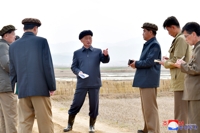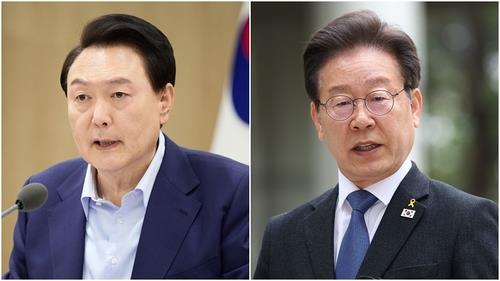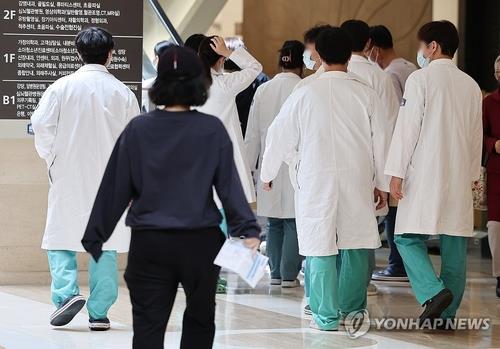Soldiers who quit smoking to be given leave as reward
SEOUL, May 31 (Yonhap) -- The defense ministry announced on Tuesday a set of anti-smoking campaigns aimed at bringing down the smoking rate of soldiers to the 30 percent level by 2020 from 40 percent at present.
The ministry devised the incentives to encourage soldiers to quit smoking on the occasion of World No Tobacco Day that falls on May 31 every year. The day was created by the World Health Organization (WHO) in 1987 to get people to stop smoking.
Under the nonsmoking project, if all the members of a platoon, including its leader, kick the habit of smoking, they will be allowed extra vacation time.
Another move is to select exemplary troops that engage in successful anti-smoking efforts and give them monetary rewards. According to the official, the five best military units that meet successful no-smoking campaign requirements will be awarded 4 million won (US$3,357) by the defense minister as a prize. Other units that have been able to cut down on smoking will also get cash rewards.
The units that are successful will, moreover, be rewarded with sports equipment and billiard tables for the soldiers to use.
In addition, if a soldier wants to quit smoking, the military will provide necessary support and help them cope with the withdrawal symptoms from July.
Also, the number of anti-smoking clinics will be expanded so that the soldiers will be able to get expert advice on how to quit smoking.
According to a poll conducted last December, the smoking rate for soldiers stood at 40.4 percent, which is higher than the 34.8 percent rate of South Korea's male adults in their 20s.
The survey also showed that soldiers smoke an average of 11.8 cigarettes a day which is 7.3 cigarettes more per day than before they entered the military.
An official said the defense ministry will continue to launch anti-smoking campaigns in the best interest of soldiers' health by pointing out that smoking causes various forms of cancer and other life-threatening diseases.
(END)
-
 Overdue debut of Korean abstract art pioneer Yoo Young-kuk at Venice Biennale
Overdue debut of Korean abstract art pioneer Yoo Young-kuk at Venice Biennale -
 Defense chief says N. Korea's hypersonic missile 'unsuccessful' in last-stage glide flight
Defense chief says N. Korea's hypersonic missile 'unsuccessful' in last-stage glide flight -
 Relax, immerse yourself in scents at Venice Biennale's Korean Pavilion
Relax, immerse yourself in scents at Venice Biennale's Korean Pavilion -
 N. Korea has capability to genetically engineer biological military products: U.S. report
N. Korea has capability to genetically engineer biological military products: U.S. report -
 S. Korea marks 30th anniv. of Korean Pavilion at Venice Biennale with contemporary art
S. Korea marks 30th anniv. of Korean Pavilion at Venice Biennale with contemporary art
-
 Overdue debut of Korean abstract art pioneer Yoo Young-kuk at Venice Biennale
Overdue debut of Korean abstract art pioneer Yoo Young-kuk at Venice Biennale -
 Relax, immerse yourself in scents at Venice Biennale's Korean Pavilion
Relax, immerse yourself in scents at Venice Biennale's Korean Pavilion -
 Artist Lee Bae captures ethereal Korean aesthetics at Venice Biennale
Artist Lee Bae captures ethereal Korean aesthetics at Venice Biennale -
 S. Korea marks 30th anniv. of Korean Pavilion at Venice Biennale with contemporary art
S. Korea marks 30th anniv. of Korean Pavilion at Venice Biennale with contemporary art -
 Defense chief says N. Korea's hypersonic missile 'unsuccessful' in last-stage glide flight
Defense chief says N. Korea's hypersonic missile 'unsuccessful' in last-stage glide flight
-
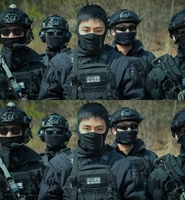 Facebook page unveils photos of BTS member V in counter-terrorism unit gear
Facebook page unveils photos of BTS member V in counter-terrorism unit gear -
 Gov't likely to accept university chiefs' request to lower med school enrollment quota
Gov't likely to accept university chiefs' request to lower med school enrollment quota -
 S. Korea not invited to G7 summit meeting this year: sources
S. Korea not invited to G7 summit meeting this year: sources -
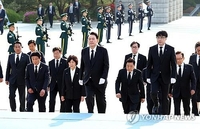 Yoon's approval rating sinks to lowest point since taking office
Yoon's approval rating sinks to lowest point since taking office -
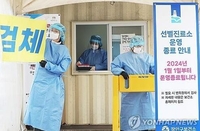 S. Korea to fully shift to 'endemic' from COVID-19 pandemic starting next month
S. Korea to fully shift to 'endemic' from COVID-19 pandemic starting next month















